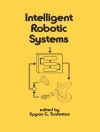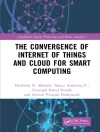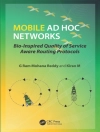This peer-reviewed book explores the technologies driving broadband internet connectivity in the fourth industrial revolution (Industry 4.0). It particularly focuses on potential solutions to introduce these technologies in emerging markets and rural areas, regions that typically form part of the digital divide and often have under-developed telecommunications infrastructures, a lack of skilled workers, and geographical restrictions that limit broadband connectivity. Research shows that ubiquitous internet access boosts socio-economic growth through innovations in science and technology, with the common goal of bringing positive change to the lives of individuals. Fifth-generation (5G) networks based on millimeter-wave (mm-wave) frequency information transfer have the potential to provide future-proof, affordable and sustainable broadband connectivity in areas where previous-generation mobile networks were unable to do so. This book discusses the principles of various technologies that enable electronic circuits to operate at mm-wave frequencies. It examines the importance of identifying, describing, and analyzing technology from a purely technological standpoint, but also acknowledges and investigates the challenges and limitations of introducing such technologies in emerging markets. Presenting recent research, the book spearheads participation in Industry 4.0 in these areas.
Table of Content
The role of millimeter-wave and 5G in the fourth industrial revolution.- 5G and millimeter-wave key technologies for emerging markets to participate in the fourth industrial revolution.- Transceivers for the fourth industrial revolution: Millimeter-wave frequency mixers and oscillators.- Transceivers for the fourth industrial revolution: Millimeter-wave low-noise amplifiers and power amplifiers.- Preparing emerging markets to participate in a new era of communications. A technical and economic perspective.- 5G and millimeter-wave broadband internet costing in unequal markets.
About the author
Johannes Wynand Lambrechts, SMIEEE, obtained his Ph.D. degrees in Electronic Engineering from the University of Pretoria, South Africa. He is the lead author of three books in the fields on sustainable energy and in microelectronic engineering, published by international publishers. He has co-authored four contributing chapters in other books in the fields of green energy and technology and the fourth industrial revolution. He previously held a position as an electronic engineer at Denel Dynamics, a state-owned company in South Africa. He is currently employed by SAAB Grintek Defence and is also serving as a part-time research associate at the University of Johannesburg, South Africa.
Prof Saurabh Sinha obtained his B.Eng, M.Eng, and Ph.D. degrees in Electronic Engineering from the University of Pretoria. As an established researcher, rated by the National Research Foundation (NRF), he has authored or co-authored over 110 publications in peer-reviewedjournals and at international conferences. Prof Sinha is the Deputy Vice-Chancellor: Research and Internationalisation, University of Johannesburg. Prof Sinha served the 2014-2015 IEEE Board of Director and as IEEE Vice-President: Educational Activities.












